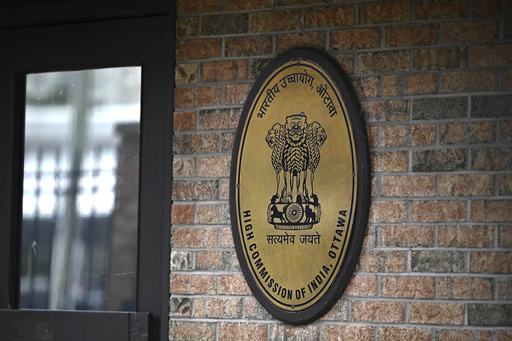
NEW DELHI — The diplomatic relations between India and Canada have reached a critical juncture as both nations have expelled their senior diplomats amid an escalating tension surrounding the assassination of Sikh activist Hardeep Singh Nijjar in Canada.
Recently, Canadian authorities notified that they had identified India’s chief diplomat in Canada as a significant figure in the ongoing assassination investigation and consequently expelled him along with five other diplomatic staff. In retaliation, India dismissed Canada’s acting high commissioner and five additional diplomats, dismissing Canada’s claims as utterly ludicrous.
This diplomatic strife stems from the fatal shooting of Nijjar, who was killed in June 2023 after leaving the Sikh temple he presided over in Surrey, British Columbia. As an Indian-born Canadian, Nijjar was a plumbing business owner and an advocate for the controversial movement seeking to establish an independent Sikh nation, a goal that is illegal in India.
In September 2023, Canadian Prime Minister Justin Trudeau claimed that credible evidence suggested Indian government involvement in Nijjar’s murder. India refuted these allegations, labeling Nijjar as a “terrorist.”
The situation deteriorated further after Canada expelled an Indian diplomat last year, prompting India to respond in kind by removing a Canadian diplomat and halting consular services for nearly two months. Tensions mounted again in May when Canadian police arrested three Indian nationals implicated in Nijjar’s assassination and began probing potential connections to the Indian government. India responded to these claims by suggesting that Canada had political motives to blame India.
On Monday, however, the matter escalated with Canada asserting that India’s leading diplomat was tied to Nijjar’s murder. Canadian police have reported evidence indicating a growing campaign against Canadian citizens allegedly orchestrated by Indian officials. The Royal Canadian Mounted Police disclosed evidence linking Indian agents to serious crimes in Canada, including homicides and other violent acts, as well as interference in Canada’s democratic institutions.
Mélanie Joly, Canada’s foreign minister, indicated that investigators had established substantial evidence connecting Indian officials to Nijjar’s assassination. She stated that Canada had identified six individuals as persons of interest in the case and had sought cooperation from India, requesting that diplomatic immunity be waived, but had received no cooperation in return.
In a statement released on Monday, India’s foreign ministry asserted that Canada has failed to produce any evidence to substantiate their claims, despite numerous requests for information. They characterized the allegations as part of a broader effort to tarnish India’s image for domestic political purposes.
Nijjar was a prominent figure within a currently diminished but historically significant movement advocating for an independent Sikh homeland, known as Khalistan. Although the Khalistan movement is prohibited in India, it retains a following within the Sikh diaspora, especially in Canada. In 2020, India labeled Nijjar a terrorist, and at the time of his death, he was under pursuit for his alleged role in an attack on a Hindu priest in India.
India’s concerns regarding Sikh separatist factions operating in Canada have long troubled bilateral ties between the two nations. Nevertheless, relations maintained a foundation of robust defense and trade links, alongside shared strategic interests concerning China’s assertive global ambitions. Recently, however, India has increasingly accused Canada of permitting Sikh separatist activities to flourish within its borders.
